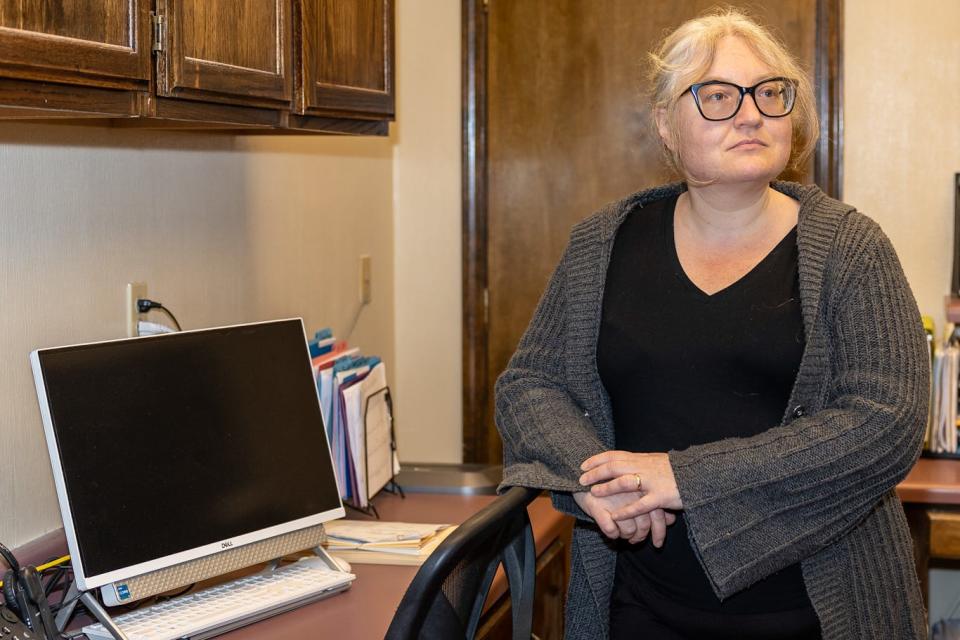Post-Dobbs, reproductive health clinics in Alabama see uncertain future
The West Alabama Women’s Center in Tuscaloosa received a donation from the Women’s Donors Network that saved the clinic from closure. They’ve also raised nearly $200,000 via individual donations through PayPal.
But despite that, Robin Marty, the operations director for the center, said they can only keep the doors open through June.
“Individual donations dried up, which makes sense,” Marty said. “I mean, everybody’s exhausted. Everybody’s asking for money.”

In Alabama, clinics focused on reproductive health and family planning are struggling financially. With limited Medicaid reimbursement for prenatal care, waning individual donations, and little to no support from state government, clinics such as the West Alabama Women’s Center in Tuscaloosa and the Alabama Women’s Center for Reproductive Health Care in Huntsville have had to adapt to a new reality.
Many of the clinics offered abortion services before the U.S. Supreme Court’s decision in Dobbs v. Jackson Women’s Health Organization last June, which overturned 1973’s Roe v. Wade and ended federal protections for abortion. Many of the clinics stayed open to provide health services to their mostly low-income and uninsured clientele.
“When we realized that basically after the hearing over Dobbs, it was pretty clear that the writing’s on the wall and that they were going to overturn Roe even then,” Marty said. “Since then, I’ve just been fundraising.”
Even before Roe, wealth disparities meant that millions of Americans struggled to access abortion in the United States. Dobbs has and will continue to profoundly worsen this impact, according to a January analysis from the Guttmacher Institute.
Factors such as poor access to sexual education and divestment from communities contribute to unwanted pregnancies. According to the Guttmacher Institute, an organization focused on sexual and reproductive rights, the rate of unwanted pregnancies is more than five times higher among women with earnings below the federal poverty line ($14,580 a year for an individual; $24,860 for a household of three) than among those with incomes at or above 200% of the poverty line. Women with incomes less than 200% of poverty had six times the abortion rate as women with incomes more than 200% above poverty.
In Alabama, where reproductive activists had to shift their efforts to family planning, Medicaid recipients and the uninsured have limited access to prenatal care.
Alabama’s near-total ban on abortion went into place hours after the Dobbs decision was handed down. But new money to help women get prenatal care did not follow.
Medicaid pays a “global package” of about $1,700 for the entire course of a pregnancy. This includes prenatal care, delivery, and postpartum care, said Dr. Yashica Robinson, the medical director at the Alabama Women’s Center in Huntsville. Medicaid only pays for “routine prenatal care,” which means that if an individual requires hospitalization due to complications, they would have to pay for that separately.
“One of the things that we’re seeing is that patients who know that they’ve had very complicated pregnancies in the past, and they are more likely to see complications with subsequent pregnancies,” said Robinson. “[They] previously would have been able to make decisions about how best to move forward. There’s no option for that now.”
The global package only includes for 15 inpatient visits during the whole course of the pregnancy, including prenatal, birth and postpartum. In case of a complicated pregnancy that requires
Besides abortion care, reproductive clinics across the state have stopped providing IUDs, a long acting, reversible contraceptive. Services like pregnancy testing, STD testing, ultrasound services and some contraceptive care are some of the few family planning services they are still able to offer.
“But it’s really not enough to keep the doors at the reproductive health clinic open,” Robinson said.
It was always this big misconception that abortion care made all this money and everything else, but that's just not the case.
– Dalton Johnson, owner, Alabama Women's Center for Reproductive Health Care, Huntsville
Because the reimbursement rate for pregnancies are so low, Dalton Johnson, the owner of Alabama Women’s Center, said that most OB-GYNs in Madison County don’t accept Medicaid. Johnson also said that with paying malpractice insurance, staff and medical providers, dealing with the shift in the scope of practice has not been easy.
The Huntsville and Tuscaloosa clinics offered abortion services before Dobbs decision, but Johnson said the services were not lucrative, and that the center was always operating on a tight budget.
“It was always this big misconception that abortion care made all this money and everything else, but that’s just not the case,” said Johnson.
Marty also said that a lot of the focus on funding has been on blue states that continue to provide abortions, and not on assisting reproductive health in red states.
“For one thing, it’s really burdensome to the patients themselves,” she said. “And it means that the people who have the absolute least amount of resources are the ones who are going to be stuck here giving birth against their will.”
Alabama Reflector is part of States Newsroom, an independent nonprofit website covering politics and policy in state capitals around the nation.
This article originally appeared on Montgomery Advertiser: Post-Dobbs, Alabama reproductive health clinics see uncertain future

